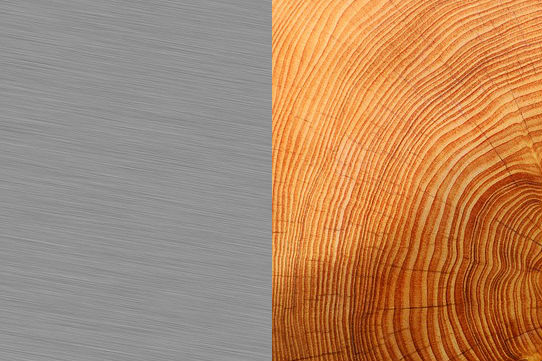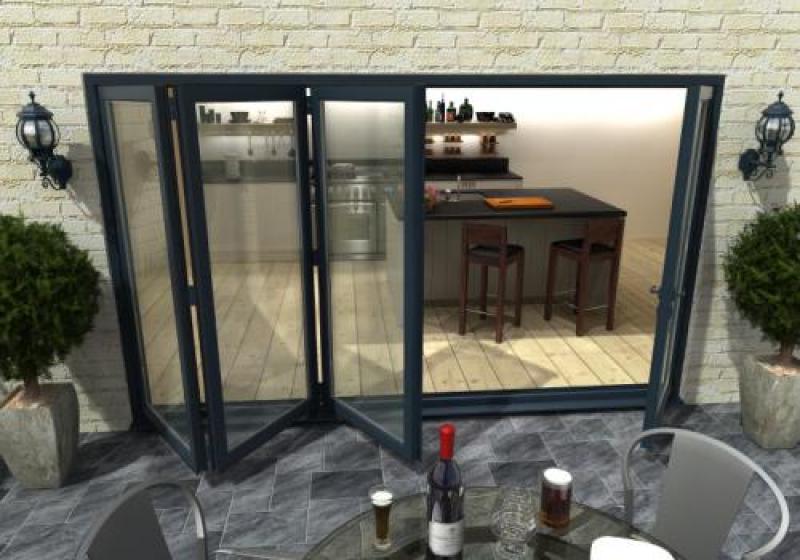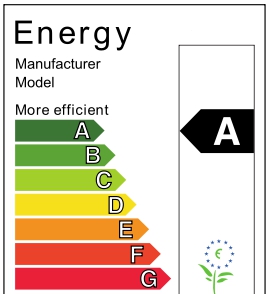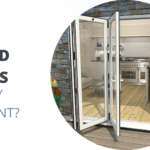Express Doors Direct ▸ Blog ▸ Aluminium Doors vs Wooden Doors
Last updated on July 22nd, 2020 at 01:13 pm
Modern doors are constructed from a broad range of materials. Two of them stand out as especially popular, namely: aluminium and timber. Both have their relative strengths and weaknesses, which make them suitable for certain applications and not for others.
Which is Better – Aluminium or Wooden Doors?
Let’s assess some of the key characteristics, and see whether aluminium or wooden doors will make a good match for your home.
Energy Efficiency
One of the apparent disadvantages of aluminium is that it’s thermally conductive. As such, heat energy will pass more easily from one side of the door to another – or at least, this was the case when aluminium doors were first hitting the market.
Nowadays, aluminium doors come with internal insulating material that vastly improves their energy performance. In the case of exterior, glazed doors, the strength and thinness of an aluminium frame means that more of the door’s surface area is devoted to the glazing itself, which means superior energy performance.
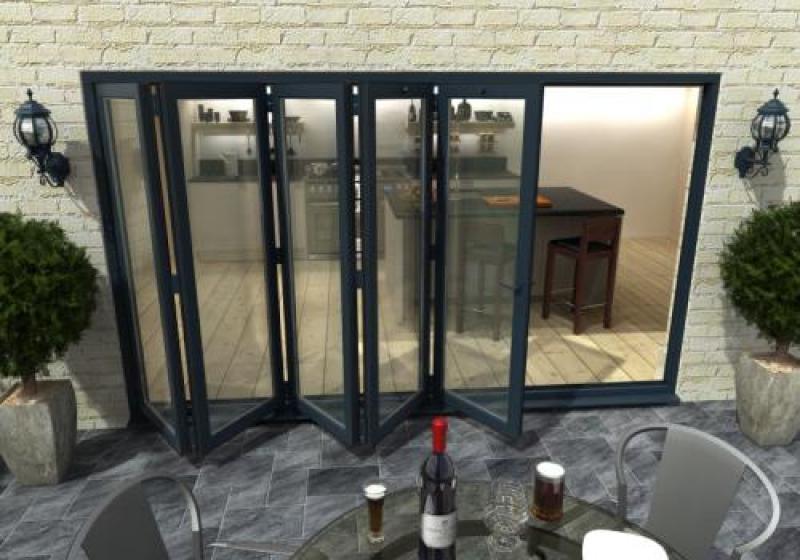
Appearance
Another consequence of the thinness of an aluminium frame in a glazed door is that more light will pass from one side of the door to another. This will make your interior appear brighter and more spacious.
Timber, however, is a naturally good-looking material, particularly when it’s treated with an attractive stain. You’ll get different aesthetics from different sorts of timber – so be sure to check out the available options before making your decision. Aluminium tends to make for a modern, clean look that makes a great match for contemporary homes, but might look out of place in a Georgian cottage. As ever, it’s important to consider the surrounding décor before committing to a decision.
Cost
Generally speaking, a high-quality aluminium door will tend to be more affordable than a high-quality wooden one. This is because of the natural cost of the material. While it’s possible to track down affordable timber alternatives, these tend to be the cheaper, flimsy sort that aren’t generally worth bothering with – particularly if the door in question is an exterior one. If a bargain seems too good to be true, then the chances are that it is; if you’re in doubt, inspect the door you’re considering in person.
Strength and Durability
Aluminium is incredibly strong, which is what allows frames made from the material to be made extra-thin. The strength of a timber door will vary according to the sort of timber being used. Fast-growing softwoods like pine are more easily broken than slow-growing hardwoods like solid oak. Another concern that’s worth bearing in mind is that timber has a tendency to warp over time, as heat and moisture penetrate the fibres and distort them.
In practice, most external doors are made from a combination of different materials designed to counteract these weaknesses and ensure a basic standard of strength. Put simply, a quality manufacturer will be able to put together a durable door using either aluminium or timber.
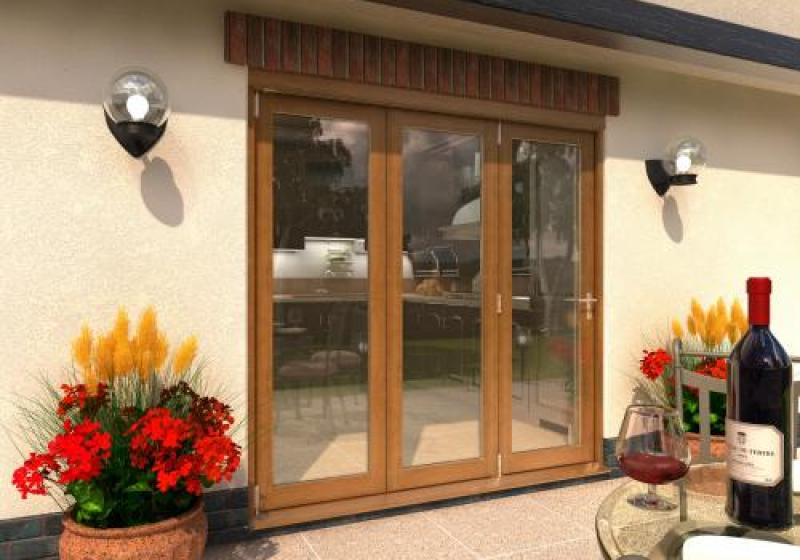
Maintenance
In order to protect timber from nicks and scratches, and to ensure that it looks suitably fantastic throughout its lifespan, the top layer of treatment will need to be refreshed. This means sanding down, cleaning and re-applying. This process usually requires a summer’s day (as the finish will need to dry out), and might take an entire afternoon.
Aluminium doors, by contrast, need no such special attention; they’re powder-coated at factory level with a shining, robust layer of paint. This limits your choice of finish, but it does mean you won’t need to perform any maintenance beyond the occasional wipe-down with a wet cloth.
Lifespan
Neither aluminium nor timber doors are fragile, provided that you opt for high-quality. Both sorts of material should be able to last for decades, given the right maintenance. So, whichever you opt for, you’re more likely to replace for aesthetic reasons than out of necessity.
With that said, if you allow a door to fall into disrepair, it’ll eventually need replacing. Hinges will need to be lubricated, as will the complex track mechanisms that allow a bifold door to move back and forth. The seals that sit around your door will also need to be periodically replaced so that they can exclude draughts. We’d suggest taking a pro-active approach to this sort of repair: it’ll take just minutes to whip out a can of WD40 and make sure things are moving as they should.
Security
Given that external doors are a likely point of entry for would-be intruders, and it’s important that we take security seriously. With that said, you door’s security is more likely to be determined by the locks you have fitted than by the material itself. External doors will require a five-lever mortice deadlock, whether they’re made from timber or aluminium.
Again, we should distinguish between the different sorts of timber door available. Hollow-core doors are inexpensive, but they won’t provide the security necessary to repel a determined intruder. On the other hand, a composite door with a timber facing will provide all of the security of a solid metal door, with the attractive finish of an oak one.
In Conclusion
We’ve looked at some of the differences and similarities between the two materials. So which is better for a door: aluminium or wood? The answer will depend on where you’re installing the door, and, of course, your personal taste. As long as you choose a well-made door, you’re sure to be pleased with the results whether it’s made from aluminium or timber!
Related Posts:
"It is about the realities of what makes for an attractive, civilized, meaningful environment, not about fashion or what's in or what's out. This is not an easy job."
– Albert Hadley
Available in a range of sizes, designs and colours with a #MadeToMeasureDoors service available too.
Email [email protected] to book in for 2024.
Featured Posts
Recent Posts

Blending Old and New: Internal Cottage Doors for a Modern Farmhouse Look

Kitchen Doors and Bathroom Doors: How to Shop and What’s in Style Now

Glazed Internal Doors: Let the Light in for Summertime – and beyond!

Wall Panelling Ideas: Unexpected Benefits and the Latest Trends

Pocket Doors vs Bifold Doors: The Pros and Cons
















































